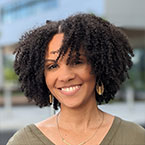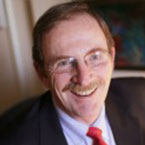By: Robert W Frenck, Jr. M.D., FAAP; Rebecca Perkins, MD, FACOG
Human papillomavirus (HPV) is a common virus that spreads easily. In fact, it is so common that most adults are infected at least once in their life. Most of the time, our bodies can suppress HPV. When a person gets infected with the virus, there is no way to know who will develop cancer or other health problems. It can take years or decades before cancer from HPV infection develops. (See "The HPV vaccine is cancer prevention for my daughter" below.)
Each year, more than 46,000 people—men and women—suffer from cancers caused by HPV. Over 7,000 die per year from cancers caused by HPV, including penile, vaginal, vulvar, anal and head and neck cancers.
That is why your child or teen needs the HPV vaccine now—to protect against viruses that cause HPV-related cancers later.
How does HPV spread?
HPV is spread through skin-to-skin contact. Although HPV is the most common sexually transmitted infection in the US, sexual intercourse is not required for transmission. Three of every four adults will have at least one HPV infection before age 30.

The HPV vaccine is cancer prevention for my daughter
By Chellese Parker
 When I was 26 years old and newly pregnant, I had an abnormal Pap and tested positive for HPV. My biggest fear around my diagnosis was not being there to raise my daughter. I was more concerned about how it would affect my baby than my own health.
When I was 26 years old and newly pregnant, I had an abnormal Pap and tested positive for HPV. My biggest fear around my diagnosis was not being there to raise my daughter. I was more concerned about how it would affect my baby than my own health.
But after a colposcopy, my gynecologist advised me that she didn’t see anything that would warrant further action. I breathed a sigh of relief, had a healthy baby girl seven months later, and didn’t give it much more thought.
Three years later when I was 29 years old, I had an abnormal Pap and a biopsy. I was diagnosed with cervical cancer.
My cancer was detected relatively early, and I knew that it would likely be resolved with surgery alone. Still, I felt completely overwhelmed. The prospect of infertility was much more ominous than my diagnosis. I had never been married and planned to have more children. I didn’t know how to process any of this at 29 years old. I felt devastated.
I opted to have a partial hysterectomy. My friends and family rallied to support me. The outpouring of love I received gave me the sense of optimism I desperately needed through my recovery process. Almost 11 years later, I haven’t had any recurrence.
I wouldn't wish what I went through on anyone—especially my daughter. There are a lot of things that I can't protect her against, but this is something that I can prevent. The way I see it, the HPV vaccine is cancer prevention.
Chellese Parker lives with her daughter in Virginia where she works as a technical writer and podcaster. To read other Cervivors’ stories and access educational information and support, visit
https://cervivor.org/
Why do kids need the HPV vaccine now, if the cancers don't develop until they are adults?
There are several reasons not to wait. The American Academy of Pediatrics recommends that kids get the HPV vaccine starting at age 9 through 12 years. Vaccinating kids when it is most effective will protect them before they are exposed to the virus. It seems to last a lifetime—so it cannot be too early to vaccinate.
The HPV
vaccine is also more effective if given at an earlier age. This is partly because pre-teens produce more antibody after HPV vaccination than older teens. HPV vaccines can be given at the same time as other vaccines.
Most children who get the first dose of HPV vaccine before their 15th birthday need two doses. The doses should be given 6 to 12 months apart.
People who start the HPV vaccine series at age 15 or later and younger people with certain immune conditions need three doses. The doses should be given over a six-month period (0, two and six months).
Is the HPV vaccine safe?
Yes! The HPV vaccine has a very good safety record. It is approved for everyone age 9 through 26 years. Some adults 27 through 45 years old also may be eligible for the HPV vaccine.
The vaccine protects people from:
over 90% of
cancers caused by the virus,
pre-cancers (abnormal cells that lead to cancer),
almost all cases of cervical cancer,
nearly 100% of cases of genital warts and
a high percentage of other HPV-related cancers.
Millions of doses have been distributed, and there have been no serious safety concerns. The vaccine continues to be monitored for safety in over 80 countries around the world.
HPV vaccine side effects
As with any vaccine, a child might have pain or redness in the arm after the injection. In any type of medical procedure, it is not uncommon that preteens or teens might faint. For that reason, we ask kids or teens to sit in the doctor's office or waiting room for about 15 minutes after any shot.
Remember
HPV infections are so common that nearly all people will get at least one type of HPV at some time in their life. Sometimes, these infections do not go away. They last longer and cause cancer later in life. When kids get vaccinated, it protects them from cancer caused by HPV for a lifetime. Ask your pediatrician at your next checkup or schedule an appointment soon if your child or teen has not started the HPV vaccine series by the time they are 9-12 years old.
More information
About Dr. Perkins:
 Rebecca Perkins, MD, MSc, is a professor of obstetrics and gynecology at Boston University. She works on projects related to HPV vaccination and cervical cancer prevention with the AAP and other medical and public health groups. Rebecca Perkins, MD, MSc, is a professor of obstetrics and gynecology at Boston University. She works on projects related to HPV vaccination and cervical cancer prevention with the AAP and other medical and public health groups.
|
About Dr. Frenck:
 Robert W. Frenck Jr, MD, FAAP, is board-certified in pediatrics and pediatric infectious diseases and a member of the AAP Section on Infectious Diseases. He practices at Cincinnati Children's Hospital Medical Center and is a professor of pediatrics at the University of Cincinnati. Robert W. Frenck Jr, MD, FAAP, is board-certified in pediatrics and pediatric infectious diseases and a member of the AAP Section on Infectious Diseases. He practices at Cincinnati Children's Hospital Medical Center and is a professor of pediatrics at the University of Cincinnati.
|